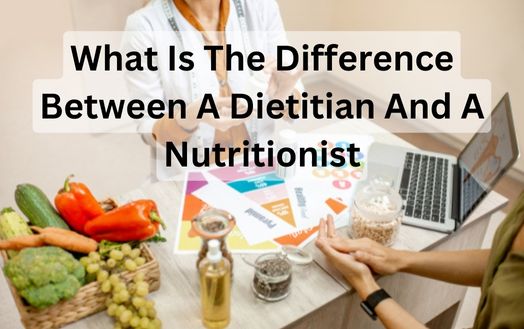All Categories
Featured
Table of Contents
- – How Much Does Medical Dietitian Service Cost?
- – What Is The Best Clinical Nutritionist Company...
- – What Do Certified Sports Dietitian Services I...
- – What Is The Average Cost Of Nutritionist Spec...
- – Who Has The Best Certified Sports Dietitian ...
- – What Is The Best Eating Disorder Nutritionis...
The kinds of Nutritionists are: and. The former are those individuals that make use of the scientific method to study nutrients, both as specific compounds and as they engage in food and nutrition while the latter are professionals who assist in diagnosing the dietary troubles of areas and in locating solutions to those troubles.
: They function with wellness programs and global wellness organizations.: They are in charge of massive food planning and service.: They are professionals in nutrition and aging. They are Board accredited in Gerontological Nutrition with the American Dietetic Association.: They are mostly included with nutritional related research in the scientific facet of nourishment in condition states, public facet on key, second and in some cases tertiary health avoidance and foodservice element in concerns involving the food gotten ready for clients.
How Much Does Medical Dietitian Service Cost?
, and papers-- either as an expert guest viewpoint, routine reporter or visitor, or for source, restaurant, or dish development and critique.: These work under exclusive method. As discussed above, all dietitians are nutritionists yet not all nutritional experts have the qualifications and qualifications to be called dietitians.
This indicates precisely the same thing as Registered Dietitian (RD), a term that has actually remained in usage for a very long time. All RDs are RDNs but some select to call themselves that and some do not. Additionally making complex matters are permit needs. While certification to come to be an RD or RDN is controlled by the Academy of Nutrition and Dietetics a nationwide organization licensure is regulated by private states.

In order to supply clinical nutrition treatment and qualify as suppliers for insurance provider, a dietitian needs to be licensed by the state. According to the Bureau of Labor Data, the need for dietitians and nutritional experts is anticipated to enhance by 20% between 2010 and 2020 this is a much faster growth rate than the average for all occupations.
What Is The Best Clinical Nutritionist Company Near Me
There are significant differences in compensation based on specialization, with Professional Pediatric Dietitians and Milk Nutritionists averaging around $90,000. In 2014, The Bureau of Labor Stats (BLS) discovered that the leading 10% of dietitians and nutritionists earn even more than $79,000, and the lower 10% much less than $36,000 - Nutritionist. A mean hourly wage of $27.62 was calculated for both sectors, with the leading 10% earning over $38.00 per hour, and the bottom 10% earning below $17.00 per hour

There is a selection of jobs offered in different environments for those who want to function with the public, as well as for those that like even more research-focused employment. Many enter into among these areas in order to assist individuals live healthier lives which can be immensely gratifying.
With current statistics that one-third of the U.S. population is obese, in addition to a a great deal of senior united state citizens, dietitians and nutritionists are most likely to have a more considerable role in the future. My Strategy rates dietitians and nutritionists at # 53 in their joy index of top 300 occupations with the greatest work satisfaction rankings.
In addition to participating in a certified program, a lot of states call for dietitians to be certified or to have expert accreditation, or both.
What Do Certified Sports Dietitian Services Include?
Your core classes may consist of: Food scientific research Chemistry Wellness treatment plan Medical nourishment Biostatistics Microbiology Food service management You'll likewise need to complete a dietetic teaching fellowship.

And to advance in the field, you'll likely need a master's level. Whether created in regulation or not, dietitians and nutritionists numerous times require a comparable education and learning. Usual bachelor's levels for nutritionists consist of nourishment science or a relevant discipline, such as dietetics, kinesiology, food system monitoring, or biochemistry and biology. Several of your courses may include: Fads in nourishment Biomedical stats Scientific nutrition Food, nourishment, and behavior Nutritional ecology Neighborhood nutrition Physiology Some level programs include teaching fellowships, however in others you'll need to locate possibilities by yourself.
The variety of hours you'll require may depend on needs in the state where you'll function. Whether you prepare to make a credential or not, it's a great concept to finish a minimum of one teaching fellowship to acquire valuable experience prior to seeking a permanent function. Licensing and accreditation needs for nutritionists and dietitians vary from state to state.
What Is The Average Cost Of Nutritionist Specialising In Diabetes Services?
A specialist accreditation shows your experience and understanding in your field. These are not certification programs. A certification shows that you have actually taken a training program to find out a skill. Qualification reveals your proficiency expands past your education which you have actually passed a qualifying exam. Here are the leading accreditations for dietitians and nutritional experts.
The titles are essentially the very same. There's no specialist distinction in between them, and you're complimentary to choose which one you desire to use based on individual preference. To take the certification exam, you should: Gain a bachelor's degree that's approved by the ACEND Total a dietetics internship After Jan. 1, 2024, you'll need to earn a master's degree to get the qualification.
Who Has The Best Certified Sports Dietitian Service?
There is a variety in incomes, with the lower 10% around $44,910 and the top 10% around $98,830, according to the BLS. Nutritional expert and dietitian roles are expected to grow 6.6% via 2032, according to the BLS.
This does not suggest that one career transcends to the various other, as they both have different features and certifications that might in some cases overlap. If you want to discover more concerning what makes these careers unique, keep analysis. Diet professionals are experts who assist boost the lifestyle via healthy and balanced food options.
What Is The Best Eating Disorder Nutritionist Product?
Nutritionist advice about nourishment's impact on health. They aid individuals adopt healthier methods of eating and create tailor-maked strategies based on objectives. Their services include nutritional analysis and counselling, dish planning and creating healthy and balanced eating programs. Some have formal education and learning and credentials, others may have more fundamental certifications. The area is much less regulated than dieticians; hence, nutritional experts' levels of experience and certifications can differ.
There are several distinctions in between dieticians and nutritional experts. Below are the training and background specifications. Dieticians usually hold a bachelor's level in dietetics, nutrition, or a related area. As their professions breakthrough, lots of dieticians seek postgraduate degrees, like a Master's or Doctorate, to be experts in specific areas of nutrition. Diet professionals have to take on monitored functional training as part of their education to acquire hands-on experience in professional setups, area nourishment programs, or food solution monitoring.
Table of Contents
- – How Much Does Medical Dietitian Service Cost?
- – What Is The Best Clinical Nutritionist Company...
- – What Do Certified Sports Dietitian Services I...
- – What Is The Average Cost Of Nutritionist Spec...
- – Who Has The Best Certified Sports Dietitian ...
- – What Is The Best Eating Disorder Nutritionis...
Latest Posts
Which Is The Best Certified Renal Dietitian Service?
How Much Does It Cost To Hire A Postpartum Dietitian?
Oncology Dietitian
More
Latest Posts
Which Is The Best Certified Renal Dietitian Service?
How Much Does It Cost To Hire A Postpartum Dietitian?
Oncology Dietitian